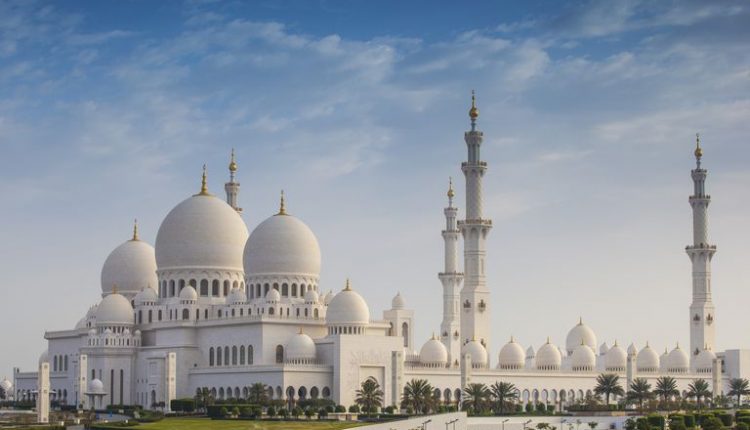Stand Together Against Radicalization in Mosque
2018 has passed by leaving various traces of cases of politics, law, to radicalism in the place of worship. Recorded from 100 mosques in ministries, institutions and SOEs, 41 of them are mosques which are indicated as being exposed to radicalism. The data is based on the results of a survey of sermon activities delivered by several lecturers.
Every Friday the NU P3M fielded 100 mosque volunteers who were the object of research. They record audio and video sermons to ensure audio and video recordings are no different. The results of 41 mosques are indicated to be radical.
The radical context of the lecture results are thoughts or movements that want fundamental change, fundamentally, regardless of other groups that are different.
This radical attitude includes speeches of hatred, intolerant attitudes towards other religions, utterances of hatred towards minorities, glorifying the concept of khilafah, and negative attitudes towards female leaders.
This certainly provides an early warning for all Muslims, to always increase their awareness, maintain a tolerant attitude and respect the diversity that has become the ideology of the Indonesian nation.
Even so there are still problems that are not free from the spotlight such as the degradation of the ideology of the nation that occurred. Until it led to an increase in social conflict in the form of sara as well as provocative content circulating in various mass media.
The State Intelligence Agency (BIN) has conducted a number of studies on Religious Teachers from elementary to high school levels, the study said that as many as 63.70% had intolerant opinions towards followers of other religions. Meanwhile, around 75.98% agreed that the government must impose Islamic Sharia.
The issue of radicalism should not be increasingly wild so that it has an impact on the lack of activity in the mosque, because there really is no element of radicalism in the mosque, but people who are in the mosque have radicalism.
Mosques also need to be activated with a variety of positive activities. Thus, the function of the mosque will be fulfilled by itself and the mosque will be kept holly place.
It seems that security forces such as the police must also be involved in dismissing radicalism in the mosque, as was done by policeman Syafrudin who at the same time served as Wakapolri, where he attended the grand recitation with the theme “Unity of Muslims for the benefit of the Nation”. split between ulama-umara, there are only political issues which are deliberately exhaled to confuse the atmosphere of unity and unity.
The presence of the police figure certainly confirmed the condition that the police had never had a problem. The police are often called unfair in handling several legal cases, especially with the arrest of several suspected terrorists. The presence of a deputy police chief in the recitation forum at the mosque, was able to ward off negative accusations on the issue of radicalism in the mosque.
The mosque is an icon of unity and unity of the people, should not be used as a “tool” for any group or group that is thirsty for power, it certainly pollutes the sanctity of the mosque as a symbol of people’s solidarity.
Local level study should also imitate this step, where in each study there are police officers who not only guard, but sit together low along with other worshipers, this will certainly dismiss the notion that mosques are a hotbed of radicalism.
Istiqlal Mosque can certainly be a reference for other mosques, this mosque is a unifying symbol of Islam, even other religious people who merge in an atmosphere of unity, peace and almost without difference. There is no debate about power, politics or intolerant attitudes that hurt others. This is a tangible manifestation of building unity through mosques.
In this case the security forces such as the police and takmir of the mosque should have built harmony in maintaining unity. The function of the mosque as empowerment of the people must be sterile from various political interests. It is fitting that we keep the mosque as a symbol of the unity of the people, sterile from various utterances of hatred, invitations to war or blasphemy which invite disputes and disputes.
Maintaining security is not only by pointing weapons at suspected terrorists, but establishing good relations with various takmir of mosques is certainly a preventive effort that is very necessary to be encouraged in various regions. The inclusion of radicalism in the mosque can be caused by mosque activities that are not so widespread.
In the Age of the Prophet Muhammad, the mosque was actually used as a place of collective awareness of the solidarity of the people, without coercion and without group tendencies or anything that was primordial in nature. The mosque is a universal symbol of unifying the people, empowering as well as learning for all humanity.
All elements of society certainly have a duty to make the mosque a symbol of people’s solidarity, by promoting unity in a frame of diversity that is tolerant of all differences. Indeed, the function of the mosque must be guarded, so that no one else has the stigma that the mosque is exposed to radicalism, because it is not a radical mosque but its people.
) * The author is an observer of political issues
